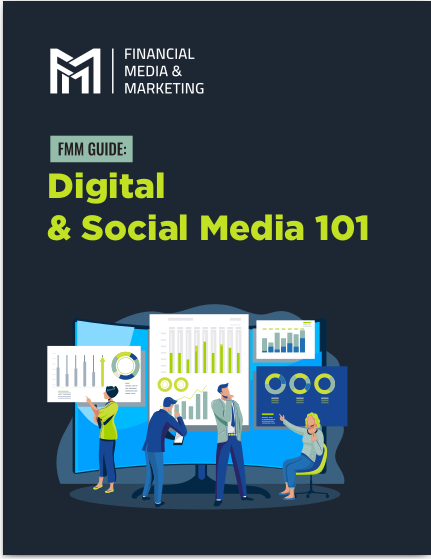Key Takeaways
-
Aligning your strategy with what search engines value most can significantly boost your brand’s visibility and online presence.
-
By focusing on user experience, high-quality content, and technical optimization, you can better engage potential clients and drive meaningful results.
Why Search Engine Visibility Matters for Financial Advisors
If you’re a financial advisor, your online presence is a direct reflection of your credibility, expertise, and trustworthiness. But having a website isn’t enough. To get in front of the right audience—people who need your guidance and services—you need to rank well on search engines like Google. When potential clients search for financial planning, retirement strategies, or investment advice, they’re looking for trustworthy solutions. If your website is buried under pages of search results, you’re missing out on significant opportunities.
Understanding what search engines prioritize can help you fine-tune your approach, improve rankings, and ultimately connect with the right clients. It’s not about tricking the algorithm; it’s about delivering value to your audience in a way search engines appreciate.
User Experience: A Major Priority for Search Engines
Search engines are in the business of giving users what they want. If your website delivers a seamless experience, you’ll already be on the right path to higher visibility.
Optimize for Speed
Nobody likes a slow-loading website. Search engines penalize websites that frustrate users with delays. Ensure your website loads quickly by compressing images, cleaning up unnecessary code, and using a reliable hosting service.
Make Navigation Easy
Your website should be simple to navigate. Organize your content logically with clear headings, sections, and menus. Clients should find the answers they’re looking for in as few clicks as possible.
Mobile-Friendly Design
More than half of web traffic comes from mobile devices. If your website isn’t optimized for mobile, you’re alienating a large portion of your audience—and search engines notice. Use responsive design so your site looks great and functions well on any screen size.
Content is Still King
High-quality, engaging content is the backbone of any strong online presence. For financial advisors, this means creating content that speaks directly to your audience’s needs and pain points.
Focus on Your Audience’s Search Intent
What are your potential clients searching for? Tailor your content to address their questions and concerns. Whether they’re asking about tax planning, wealth management, or retirement savings, your content should provide clear, actionable answers.
Use Targeted Keywords Naturally
Keywords are the bridge between search engines and your content. Conduct research to identify the terms your audience uses when looking for financial advice. Incorporate these keywords naturally into your headings, subheadings, and text.
For example:
-
Primary Keyword: Retirement planning strategies
-
Long-Tail Keyword: How to plan for retirement in your 40s
Avoid keyword stuffing, as search engines penalize this practice. Instead, write for your audience first and refine content to include keywords where it makes sense.
Diversify Content Types
Different people consume content in different ways. Offering a mix of blog posts, videos, infographics, and guides can help you engage a broader audience. Financial topics often benefit from visual aids like charts and tables, as they simplify complex information.
Building Authority Through Backlinks
Search engines want to show users trusted, authoritative websites. One way they gauge this is by looking at backlinks—other websites linking to yours. Quality backlinks signal to search engines that your content is valuable.
Get Featured on Relevant Websites
Reach out to financial news platforms, industry blogs, and other relevant sites to collaborate on guest posts or interviews. When your content gets featured on reputable sites, it adds credibility and generates high-quality backlinks.
Publish Shareable Content
Create content others want to share. Research-driven articles, unique insights, and well-designed infographics are more likely to attract links from other websites.
Leverage Local SEO to Target the Right Clients
As a financial advisor, your audience may be geographically specific. Local SEO ensures you show up in search results when people look for advisors in their area.
Optimize Your Google Business Profile
Ensure your Google Business Profile (formerly Google My Business) is accurate and complete. Include your location, contact information, office hours, and a brief description of your services. Encourage satisfied clients to leave reviews—positive ratings can boost your local rankings.
Use Local Keywords
Incorporate location-specific keywords into your content. For example:
-
Financial advisor in [Your City]
-
Retirement planning near me
Include Structured Data
Structured data (schema markup) helps search engines understand your business details better. This can increase your chances of appearing in local packs, maps, and other featured results.
Technical Optimization: What Search Engines Look For
While high-quality content and user experience are crucial, search engines also evaluate your website’s technical health.
Secure Your Website
Search engines prioritize secure websites. Ensure your site uses HTTPS instead of HTTP to protect user data. If you haven’t already, get an SSL certificate from your hosting provider.
Fix Broken Links
Broken links frustrate users and harm your SEO. Regularly audit your website to identify and fix any links that no longer work.
Submit an XML Sitemap
An XML sitemap helps search engines crawl and index your website. Most website platforms allow you to create and submit a sitemap through tools like Google Search Console.
Measure and Adjust Your SEO Strategy
Improving your search engine visibility is an ongoing process. Track your progress, see what’s working, and make adjustments as needed.
Monitor Website Traffic
Use tools like Google Analytics to track where your traffic is coming from and which pages are performing best. Are people finding your site through search? Are they staying or leaving quickly?
Analyze Keyword Performance
Monitor how well your keywords are ranking. If certain terms aren’t performing as expected, tweak your content or explore new keyword opportunities.
Test and Refine
SEO isn’t a one-and-done effort. Test different content types, headlines, and layouts to see what resonates best with your audience. Continuous refinement helps you stay ahead of competitors.
Staying Ahead: Align with Search Engine Trends
Search engines constantly evolve, and staying updated with changes can give you a competitive edge.
Voice Search Optimization
More people are using voice assistants like Alexa and Siri to search for information. Optimize your content for voice search by using conversational language and answering common financial questions concisely.
Focus on E-A-T
Google prioritizes websites that demonstrate Expertise, Authority, and Trustworthiness (E-A-T). As a financial advisor, this aligns perfectly with your profession. Showcase your credentials, provide transparent information, and publish accurate, in-depth content.
Monitor Algorithm Updates
Google frequently updates its algorithms to improve search results. Stay informed about these changes and adjust your strategy as needed to maintain rankings.
Take Control of Your Online Visibility
By understanding what search engines value most, you can improve your visibility, connect with more clients, and strengthen your brand’s authority. Focus on delivering an exceptional user experience, creating valuable content, and fine-tuning the technical aspects of your site. Remember, it’s not about gaming the system—it’s about providing value to your audience in ways that search engines recognize and reward.
With consistent effort, you’ll not only rank higher but also build trust and credibility among the clients you want to serve.










